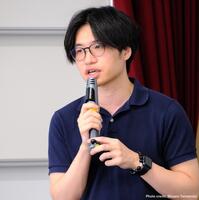Research Experience
-
2021.09-2025.03
Waseda University Green Computing Systems Research Organization Assistant Research Professor
-
2022.04-2024.03
Kyoto Institute of Technology External Program coordinator
-
2023.04-
Rikkyo University College of Intercultural Communication Part-time lecturer
-
2022.04-2023.03
Waseda University Faculty of Letters, Arts and Sciences Part-time lecturer
-
2022.04-2022.09
Tokyo University of Science Institute of Arts and Sciences Katsushika Division, Institute of Arts and Sciences
-
2021.05-2021.06
University College London Institute of Education Research assistant
-
2020.01-2021.03
Lancaster University Department of Linguistics and English Language Part-time lecturer
-
2018.10-2019.04
Lancaster University
-
2018.05-2018.08
Waseda University Faculty of Education and Integrated Arts and Sciences
-
2014.04-2018.03
Waseda University School of Education
-
2016.10-2017.04
Lancaster University
-
2014.10-2015.03
Waseda University Faculty of Commerce Research assistant
-
2014.08-2014.09
米国オレゴン州立友人学園小学校 日本語教師インターン


Click to view the Scopus page. The data was downloaded from Scopus API in March 11, 2025, via http://api.elsevier.com and http://www.scopus.com .